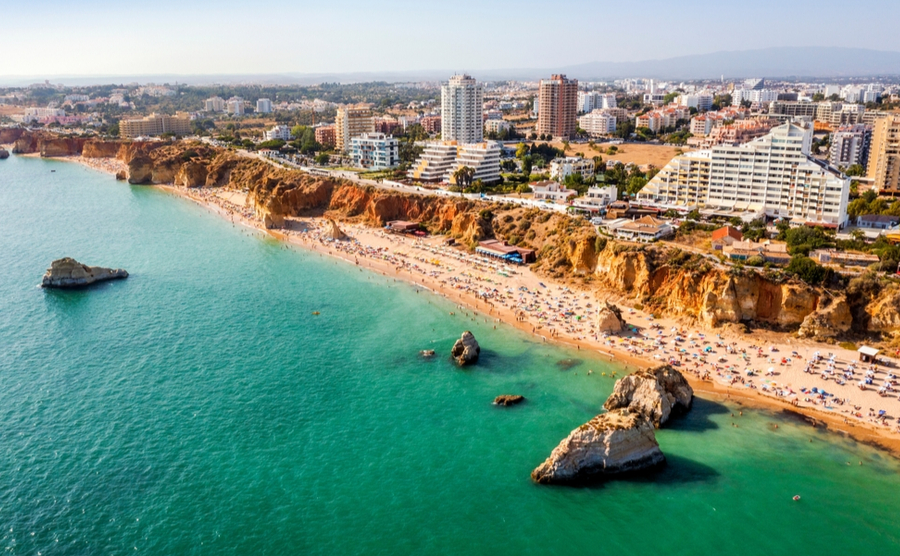New measures concerning housing in Portugal have caused controversy, but they could be positive for overseas buyers. However, buyers need to ensure that what they plan to do with the property will be allowed.
Portugal’s policymakers have woken up to the fact that housing is for living in, and happy, lively communities require a stable population. Hence, while some of the measures in a new bill have provoked outrage, they could be positive for holiday home-owners and expats alike.
The Portuguese government’s latest set of proposals, named “Mais Habitação” (More Housing), currently up for consultation, are extensive, and causing plenty of debate. If passed, they could have transformative effects on housing in Portugal – particularly the rental market. The boom in short-term, “Airbnb style” rentals, has lead to complaints that locals are being priced out of cities.
In this article, we look at what’s on the table as part of the Mais Habitação plans, and consider any impacts they may have on overseas buyers and residents.

Aerial view of a residential area in Lisbon
Alojamento Local
The first potential change involves a new crackdown on Alojamento Local (AL) rentals. These are short term rentals to tourists. AL is already heavily restricted in some areas, but the proposals involve an outright ban on new AL properties in the main cities, and areas with “housing pressure.”
As reported by The Portugal News, existing short-term rental properties could be affected too, with a proposal to review all current licenses in 2030, and every five years from then on. Condominiums could also be given more power to object to AL licenses, potentially avoiding those well-documented disputes between permanent residents and those using their properties as holiday lets.
Those who instead rent to long-term tenants can benefit from paying no income tax on that revenue – perhaps a more lucrative investment opportunity.
It’s certainly wise for overseas buyers to closely monitor these developments, especially any plans to buy an apartment to rent out to tourists in Lisbon or Porto. However, the government is also offering a zero IRS taxation incentive (until 2030) to owners who switch their rentals away from AL. Those who instead rent to long-term tenants can benefit from paying no income tax on that revenue – creating a different (and perhaps even more lucrative) investment opportunity.

Should you have any legal concerns, speak to a licensed professional
“Forced” rentals
The most controversial proposal – by a long way – is the idea of owners of vacant buildings becoming subject to a “mandatory leasing” law. Essentially this means that any property left vacant for more than a year in Portugal could be commandeered by the state, to provide rental accommodation to citizens.
Although this is providing plenty of headlines for the local media, the detail of the proposed policy isn’t as onerous as one might assume. As explained in O Jornal Económico, there are many exceptions. The one that will provide relief to expats is that holiday homes are excluded, as are those belonging to people who are displaced or unwell.
Of all the policies in the Mais Habitação plans for housing in Portugal, this is likely to be the one that stimulates most debate.
Find homes in Portugal via our property portal.
Capital gains relief
Those fortunate enough to have “spare” homes to sell will – if the proposals are passed – have the possibility of selling them to the state, for use as rentals. These sales will be exempt from capital gains tax – providing an incentive to sell to the government rather than to a private buyer.

Portimao, Portugal
License simplification
Also in the proposals are plans to make it easier to develop new homes, providing more options for housing in Portugal. Commercial properties will be able to be converted for residential use, without the need for any permits. The licensing process for developments that do need paperwork will be sped up. Meanwhile, there will be fines for developers who fail to meet their project deadlines.

Portugal’s Fernando Medina, minister for finance
Further financial measures for housing in Portugal
Another incentive for potential residential landlords is a 3% drop in income tax for rental earnings (from 28% to 25%). On the tenant’s side, there will be additional protection in the event of hardship, with the government stepping in to pay rent after three months of non-payment. In addition, families who spend in excess of 35% of their income on housing, will be able to claim a monthly rent support payment.
There’s plenty to unpack among these new measures for housing in Portugal. It’s important to remember that this is all at proposal stage at the time of writing, and that there’s no certainty that all of these things will be passed. However, on past performance, the Portuguese government has proved itself far from shy when taking radical steps to ensure that housing market most serves those who need homes to live in. It’s an approach that those in certain other European countries may well envy.
For those considering investing in Portugal, it’s worth paying particular attention to this renewed focus on delivering homes for long term rental. The government seems more than willing to incentivise and work in partnership with suitable investors.
Read our free Buying in Portugal guide below, or download a copy for yourself











